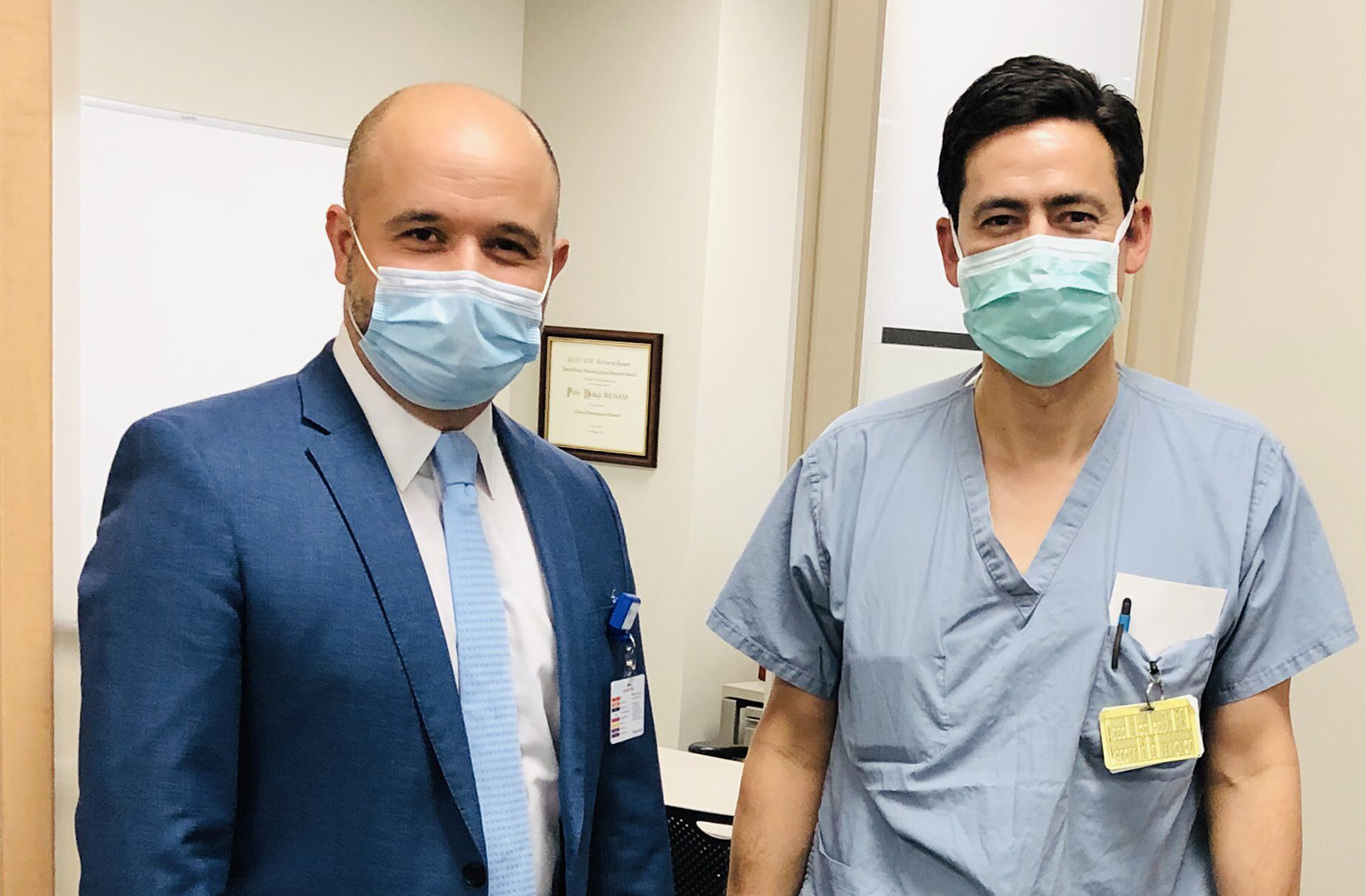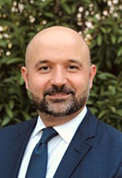
Ali Baaj, MD, Joins College of Medicine – Phoenix as Inaugural Chief of Spine Surgery

Ali Baaj, MD, has joined the University of Arizona College of Medicine – Phoenix and Banner – University Medical Center Phoenix as the inaugural chief of Spine Surgery, where he will build a new, academic spine program at the largest hospital system in Arizona.
 Dr. Baaj, who is an award-winning spinal surgeon specializing in the surgical treatment of complex spinal conditions in both adults and children, started his new role on Oct. 1. As inaugural chief of Spine Surgery, Dr. Baaj’s vision is for the U of A-Banner program to become “nationally reputable in the delivery of exceptional clinical care, transformative research and outstanding training.”
Dr. Baaj, who is an award-winning spinal surgeon specializing in the surgical treatment of complex spinal conditions in both adults and children, started his new role on Oct. 1. As inaugural chief of Spine Surgery, Dr. Baaj’s vision is for the U of A-Banner program to become “nationally reputable in the delivery of exceptional clinical care, transformative research and outstanding training.”
“I came to Phoenix because I saw a unique opportunity to build, from the ground up, a new, academic spine program in one of the largest and fastest growing cities in the U.S.,” Dr. Baaj said. “I will work closely with the talented group of surgeons already providing quality spine care at Banner to enhance and expand our services. The impact that this program, as part of the leading university and health care organization in Arizona, can have on the community and the region is immeasurable.”
In his new role, Dr. Baaj is tasked with aligning providers, resources and infrastructure to accomplish the goals of providing exceptional spine care to patients. As a surgeon, he will continue to treat patients with complex spinal conditions, with emphasis on spinal deformity and oncology. Additionally, Dr. Baaj is an associate professor in the Departments of Neurosurgery and Orthopaedic Surgery, where he will educate medical students and trainees about spinal injuries.
Dr. Baaj will also be working with Banner to provide educational seminars designed to enhance the community’s access to quality education on topics like back pain, neck pain and spine surgery.
“I want the community to know we will be there for them,” Dr. Baaj said. “We will be a resource to the community, and we will practice patient-centered care that engages patients and respects their values, needs and preferences. Additionally, I want the community to share our excitement of working toward building a nationally and internationally recognized program right here in the beautiful city of Phoenix.”
Dr. Baaj previously served as an associate professor of Neurological Surgery and co-director of the Spinal Deformity and Scoliosis Program at Weill Cornell Medical College, Cornell University in New York. He has published more than 100 abstracts and manuscripts and is the author of many book chapters with emphasis on spinal anatomy, minimally invasive spine surgery and advanced surgical techniques. He is the editor of four textbooks on spinal surgery, including the award-winning “Handbook of Spine Surgery.”
“As a life-long academician, I'm constantly involved in research and training initiatives,” he said. “Once I settle, I will be initiating a prospective clinical outcomes registry to study, on a granular level, patient reported outcomes after surgery. With this type of data, we can quote our patients own success rates, complication risks and other metrics that will improve decision-making, as well as the quality and value of our procedures. I will also work alongside my partners in orthopedic spine surgery and neurosurgery to conduct national training initiatives in spine from our very own Phoenix campus.”
Dr. Baaj earned his medical degree from Boston University College of Medicine. He completed a general surgical internship at Johns Hopkins University in Baltimore, followed by a neurosurgical residency at the University of South Florida in Tampa. Dr. Baaj continued his training as a complex spine fellow at Johns Hopkins, with an emphasis on advanced techniques in spinal tumor resection and spinal reconstruction. He also completed a two-month traveling fellowship in Paris Children’s Hospital, studying advanced techniques for pediatric deformity and scoliosis. Dr. Baaj has served on various committees of national and international spine surgery organizations, including AO Spine and the Scoliosis Research Society.
“My proudest accomplishments are of course being a loving husband and proud father,” Dr. Baaj said. “Additionally, though, I feel extremely lucky to be here in Phoenix and to work with health care leaders and educators to advance spine education, training and clinical care in this region.”
Topics
About the College
Founded in 2007, the University of Arizona College of Medicine – Phoenix inspires and trains exemplary physicians, scientists and leaders to advance its core missions in education, research, clinical care and service to communities across Arizona. The college’s strength lies in our collaborations and partnerships with clinical affiliates, community organizations and industry sponsors. With our primary affiliate, Banner Health, we are recognized as the premier academic medical center in Phoenix. As an anchor institution of the Phoenix Bioscience Core, the college is home to signature research programs in neurosciences, cardiopulmonary diseases, immunology, informatics and metabolism. These focus areas uniquely position us to drive biomedical research and bolster economic development in the region.
As an urban institution with strong roots in rural and tribal health, the college has graduated more than 1,000 physicians and matriculates 130 students each year. Greater than 60% of matriculating students are from Arizona and many continue training at our GME sponsored residency programs, ultimately pursuing local academic and community-based opportunities. While our traditional four-year program continues to thrive, we will launch our recently approved accelerated three-year medical student curriculum with exclusive focus on primary care. This program is designed to further enhance workforce retention needs across Arizona.
The college has embarked on our strategic plan for 2025 to 2030. Learn more.